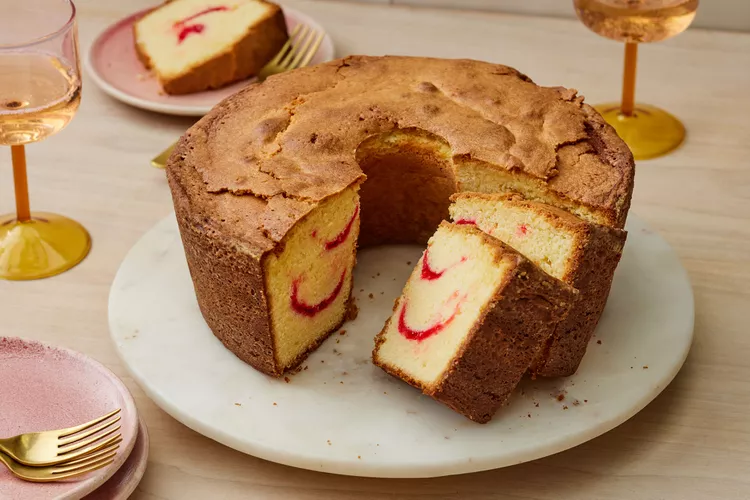In the enchanting world of baking, the allure of a layer cake is undeniable. Its towering, beautifully frosted tiers evoke a sense of celebration and indulgence. However, the process of creating a layer cake often seems like a daunting task, typically involving multiple pans and a fair amount of finesse. But what if there was a way to achieve that same show – stopping effect with just a single 13 – x – 9 pan?
Building a traditional layer cake can be a test of both skill and patience. The need for multiple round or square baking pans can be a hurdle, especially for those with limited kitchen space or equipment. Yet, with a little creativity and a simple technique, a humble sheet cake baked in a 13 – x – 9 pan can be transformed into a stunning two – layer treat.
We developed this ingenious method using our Lemon Buttermilk Cake, a recipe that combines zesty lemon flavors with the richness of buttermilk. But the beauty of this technique is that it’s not limited to just one type of cake. Any sturdy sponge cake, such as a carrot cake or a chocolate sheet cake, can be used to create your own layered masterpiece.
The Art of Transforming a Sheet Cake
Assembling a layer cake, whether traditional or crafted from a sheet cake, requires a bit of patience. Fortunately, this particular process is relatively straightforward and hassle – free. However, one crucial step that should never be skipped is chilling the cake at various stages. This simple act makes the assembly process significantly easier and ensures a more professional – looking result.
Step 1: Split the Cake
Once your sheet cake has cooled completely (this is essential, especially if you’ve brushed it with a soak while it was warm), it’s time to split it into two layers. Take a long, serrated knife and, using a gentle sawing motion, slice the cake in half crosswise. This will create two rectangular pieces. A sharp knife is your best friend here, as a dull one might tear the delicate sponge, marring the appearance of your layers.

Step 2: Frost the First Layer
Carefully place one of the cake halves on your serving plate. Using an offset spatula, spread one cup of your chosen frosting evenly across the top of the cake. The key here is to create a smooth, even layer. Once frosted, place the cake, uncovered, in the fridge for 20 minutes. Chilling the frosted layer helps the frosting set slightly, providing a more stable base for the next step.
Step 3: Stack the Layers
After the 20 – minute chill, remove the first layer from the fridge. Now, carefully place the remaining cake half on top of the frosted layer. Take your time to line up the edges of the two halves as precisely as possible, ensuring that the sides of the cake are straight. If the layers don’t align perfectly on the first try, don’t worry. You can gently nudge them into place until everything looks just right.
Step 4: Finish with Frosting
With the layers stacked, it’s time to give your cake its final touch. Spread the remaining frosting over the top and sides of the cake. The soft frosting naturally creates beautiful, rustic swoops, giving the cake a charming, homemade look. But if you’re feeling adventurous, you can take it a step further and pipe intricate designs onto the cake. For clean, neat slices later on, it’s a good idea to chill the cake again until the frosting is firm, which usually takes about 30 minutes.
Tips for a Flawless Assembly
Before you embark on your layer – cake – making adventure, here are some valuable tips to keep in mind:
- Cool the Cake Completely: As mentioned earlier, starting with a fully cooled cake is non – negotiable. Warm cake is more fragile and prone to crumbling during the slicing and stacking process.
- Build on the Serving Platter: To avoid the risk of damaging your beautifully assembled and frosted cake, build it directly on the serving platter. This way, once it’s done, you can simply carry it to the table without any stress.
- Soften the Cream Cheese: If your frosting contains cream cheese, make sure it’s at room temperature before you start. This ensures that the frosting will be smooth and lump – free, making it easier to spread and work with.
- Chill for Success: The soft nature of the cream – cheese – based frosting means that chilling the cake at key points is essential. It helps the frosting firm up, preventing it from oozing out the sides when you stack the layers and ensuring a more stable, professional – looking cake.
With these tips and techniques in hand, you’re now ready to turn a simple sheet cake into a show – stopping layer cake. Whether it’s for a special occasion or just a treat for your family, this method allows you to create a bakery – worthy masterpiece right in your own kitchen, all with the help of a single 13 – x – 9 pan.

